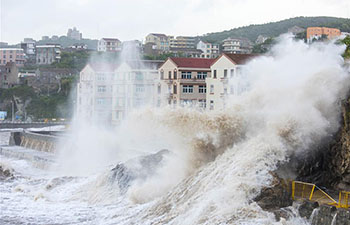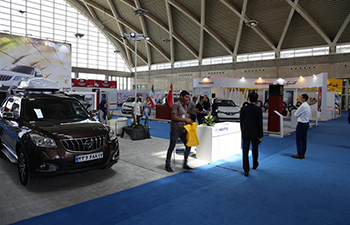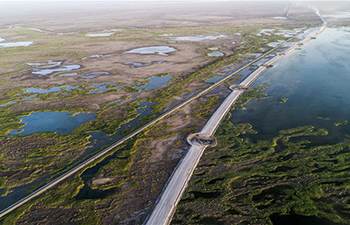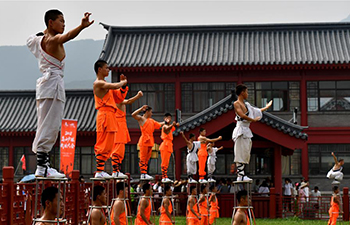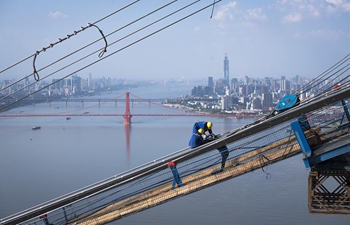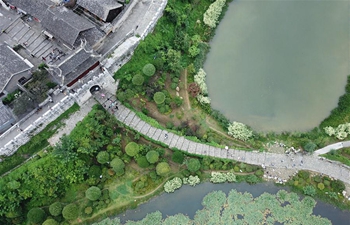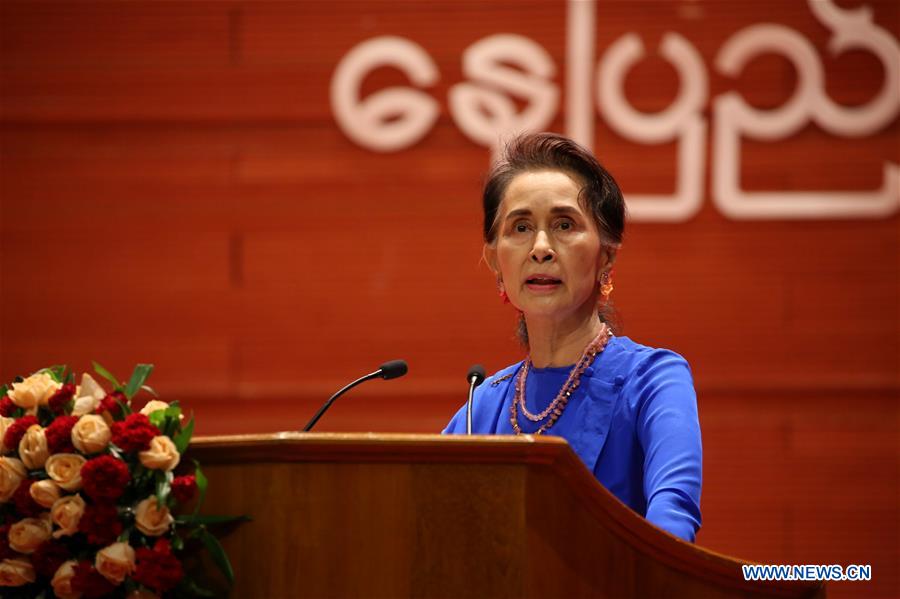 ?
?Myanmar State Counselor Aung San Suu Kyi delivers a speech during the third meeting of Myanmar's 21st Century Panglong Peace Conference at the Myanmar International Convention Centre in Nay Pyi Taw, Myanmar, July 11, 2018. Myanmar State Counselor Aung San Suu Kyi said on Wednesday that the door for peace always remains open to those armed groups who have not yet joined the government's Nationwide Ceasefire Accord (NCA) to have dialogue and settle the issue. (Xinhua/U Aung)
NAY PYI TAW, July 11 (Xinhua) -- Myanmar State Counselor Aung San Suu Kyi said on Wednesday that the door for peace always remains open to those armed groups who have not yet joined the government's Nationwide Ceasefire Accord (NCA) to have dialogue and settle the issue.
Suu Kyi, who chairs both the National Reconciliation and Peace Center and the Union Peace Dialogue Joint Committee, made the remarks at the opening of the third meeting of the 21st Century Panglong Peace Conference which kicked off in Nay Pyi Taw Wednesday.
She hoped that the meeting will be able to sign the Union Agreement-Part II as the second step of the peace process at the end of the six-day meeting and will continue to strive for the third step in the peace efforts.
She called for moving ahead with confidence amid difficulties and challenges on way to a democratic and federal union.
Suu Kyi pointed out that the root cause of armed conflicts is political issue, urging thorough coordination and resolving of the issue which her ruling National League for Democracy (NLD) has always been upholding.
She warned that if agreements can not be reached on federalism, it could delay the success of the peace process, noting that federalism does not mean secession but unity and consolidation.
She outlined some main objectives of the conference to be pursued: emergence of a union based on democracy and federal system; signing of the Nationwide Ceasefire Accord (NCA) by those yet to do so, followed by political dialogue to achieve eternal peace; opening coordination on the path of national reconciliation efforts without exerting pressure and force politically to reach agreements that can be accepted by all parties.
She disclosed that one more session of the conference will continue later this year, two more next year and three more in 2020 when important basic principles on democracy and federalism could be laid down completely for the emergence of a future democratic and federal union.
Commander-in-Chief of Defense Services Sen-Gen Min Aung Hlaing, in his welcoming speech, stressed the top priority to end the armed struggle for establishing democratic federal union.
He urged the stake holders to negotiate thoroughly with genuine goodwill during the conference as well as in line with the interests of the state and national ethnic groups and to continue with the talks till sustainable peace results can be produced.
He also pledged military's active participation in the peace process without harming the union, national unity, independence and sovereignty.
The six-day third meeting of Myanmar's 21st Century Panglong Peace Conference, which aims to unite all ethnic nationalities and build a democratic federal union through dialogue, is set to further discuss unfinished fundamental principles on federalism as well as the formulation of new principles for the establishment of a federal union submitted group-wise through national-level political dialogue.
The conference will focus on some remaining points related to political, economic, social, security, and land and natural environment sectors, submitted by the Union Peace Dialogue Joint Committee (UPDJC) for adoption to be included in the union agreement for peace.
The political sector covers points of the rights of ethnic minorities and democratic human rights and gender equality.
The conference gathered representatives from the government, the parliament, the military, political parties, ethnic armed organizations and civil society.






